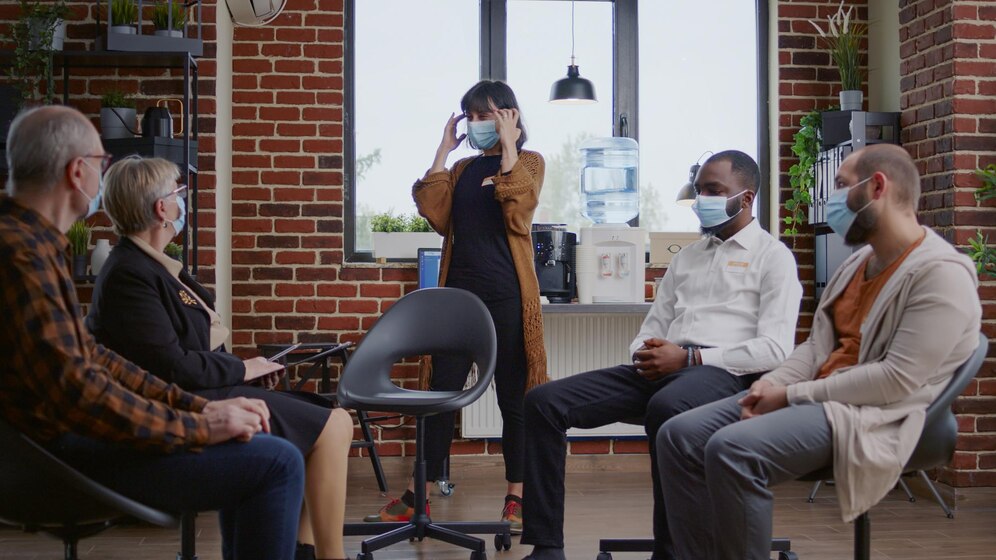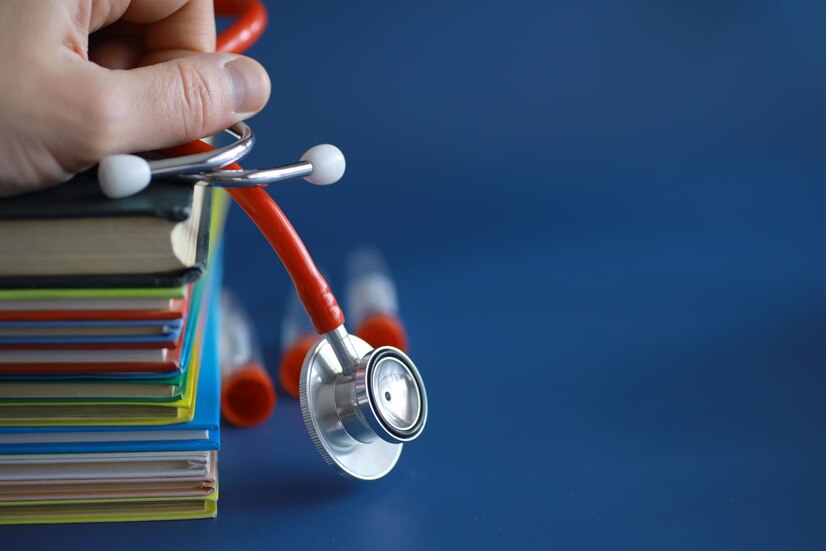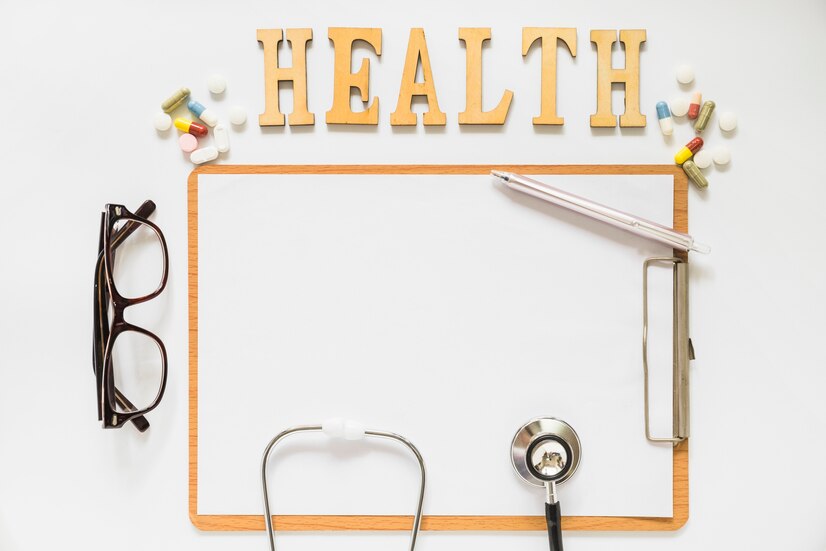
Enhancing health literacy: Key strategies and importance
Educating yourself about how to live a healthy lifestyle, for sustainable growth, overcoming medical situations, and making informed decisions is necessary to live a healthy and nutritious lifestyle. Educating yourself is a self- care and a long-term investment you can give to yourself and if educated about it enough can help your peers.
This blogpost will give you insights about what health literacy actually is, why we should bother about it, and what changes it makes by adapting some strategies in our life. Get ready to make sustainable changes in your life by achieving consistency in your diet and your lifestyle patterns.
Understanding health literacy: What it is and why it matters
So first and foremost, what is health literacy?
Being educated about things that directly or indirectly affects our body or could affect our health and well-being, making lifestyle changes to improve our lifestyle by nurturing a healthy one. It includes varieties of skills which includes, reading, listening, analytical and decision-making abilities. It can also incorporate medical terms, health-related factors which can vary from various sources, analysing its pros and cons and communicating with health providers.
Coming to the main question, why should it matter to us?
It matters for a following reasons:
- Making well-informed decisions: This helps people to make informed decisions by educating themselves with health information in order to live a healthy lifestyle.
- Minimising inequalities in health: ensures that everyone has access to easily understood health information in order to address disparities in health outcomes.
- Good communication: Promotes unambiguous communication between medical professionals and patients, improving the standard of treatment.

- Encouraging preventive care: This lessens the burden of chronic illnesses by empowering people to take preventive action.
- Empowering patients: Promotes proactive involvement in personal health management and patient advocacy.
Importance of health literacy: Impact on health outcomes
The value of improving health literacy is as follows:
- Empowerment: Those with higher health literacy are more equipped to take charge of their health, make educated decisions, and speak out for themselves when interacting with the healthcare system.
- Health equity: Reducing health inequalities between various demographic groups can be achieved by addressing health literacy discrepancies. It guarantees that everyone, irrespective of socioeconomic class or educational background, has equal access to health information and resources.
- Better health outcomes: People who possess a greater level of health literacy are more likely to follow treatment programs, take preventative measures, and effectively manage long-term illnesses. Better health outcomes and lower healthcare expenditures result from this.

- Improved health literacy: It promotes a patient-centred approach to healthcare in which patients take an active role in their own treatment and decision-making. Patient satisfaction and confidence in medical professionals may increase as a result.
- Decreased healthcare utilisation: Better health literacy can contribute to a decrease in needless ER visits, hospital stays, and medical problems by encouraging preventative treatment and early intervention.
Effective strategies to improve health literacy
Following are the strategies to improve health literacy:
- Information that is accessible: Going through materials which are easily accessible, clear to understand, and avoid usage of heavy medical terms. Which has diagrams, multimedia tools to make the information more understandable.
- Health literacy campaigns: Attending/ organising workshops or sessions related to health to get an outline of it, and clear their questions with the professionals and make a routine according to that.

- Customise interaction: To design health communication in a way that is understood and clear to diverse populations considering cultures, languages and their education levels.
- Digital health resources: Making pocket friendly digital tools that are easy to use and are accessible to all. Keep updating trusted information about various health issues and its way out of the problem disseminating through faith-based groups and by influencing health initiative campaigns within local communities.
- Peer assistance systems: Set a peer support network or be incharge of programmes where people share instances of their health problems, exchange information and help each other navigate through a healthcare solution.
Conclusion
To sum up, raising health literacy is crucial for fostering personal agency, improved health results, and achieving health fairness. We can build healthier, better-informed communities by putting focused initiatives into practice and emphasising the value of health literacy across a range of industries.

Health should be provided in an easy accessible, cost-effective way so that people can understand it and draw their conclusion accordingly and if so are informed enough to help their peers out. Sticking to the drawn routine can lead them towards a healthy and nutritious lifestyle.
Frequently Asked Questions
What is health literacy and why is it important?
The capacity to comprehend and apply health-related information efficiently in order to make well-informed decisions regarding one's health is referred to as health literacy. It's important because it gives people the ability to access healthcare systems, comprehend prescriptions, and adopt healthy habits, all of which improve health outcomes. People who possess sufficient health literacy can take an active role in their own health management, which can enhance communication with healthcare practitioners and result in more informed healthcare decisions.

How does improved health literacy benefit individual and public health?
Better decision-making, healthier behaviours, and better self-management of medical issues are all made possible by increased health literacy, which also improves individual health. Broadly speaking, it improves public health by decreasing healthcare inequalities, improving patient-provider communication, and cultivating a more informed and involved populace that can speak out for their own health needs and support healthier communities.
What are some effective strategies to improve health literacy?
Promoting the clear communication of health information through the use of visual aids and simple language, offering resources for health education that are accessible and catered to a variety of demographics, and providing skill-building initiatives to strengthen critical thinking and health-related decision-making are all effective ways to increase health literacy. Further empowering people to properly explore and comprehend health information is possible through community collaborations, the inclusion of health literacy training in healthcare facilities and school curriculum, and both.
Can you provide practical tips for individuals to enhance their own health literacy?
Of course! By actively searching out trustworthy health information from dependable sources, such as recognized medical organisations or government health websites, people may improve their health literacy. During doctor's appointments, they should clarify anything that is confusing and make sure they understand by asking questions. Finally, maintaining a health notebook to record symptoms, prescriptions, and visits can help with improved comprehension of personal health information and facilitate efficient communication with healthcare professionals.
How can healthcare providers and educators help improve health literacy in their communities?
By employing visual aids to promote comprehension and clear language when conveying health information, educators and healthcare professionals may increase health literacy. Encouraging people to attend workshops or seminars on subjects like figuring out the healthcare system and medical jargon can help them take control of their health. Furthering the promotion of health literacy in communities might involve integrating health literacy tests and interventions into clinical practice and educational curriculum.









